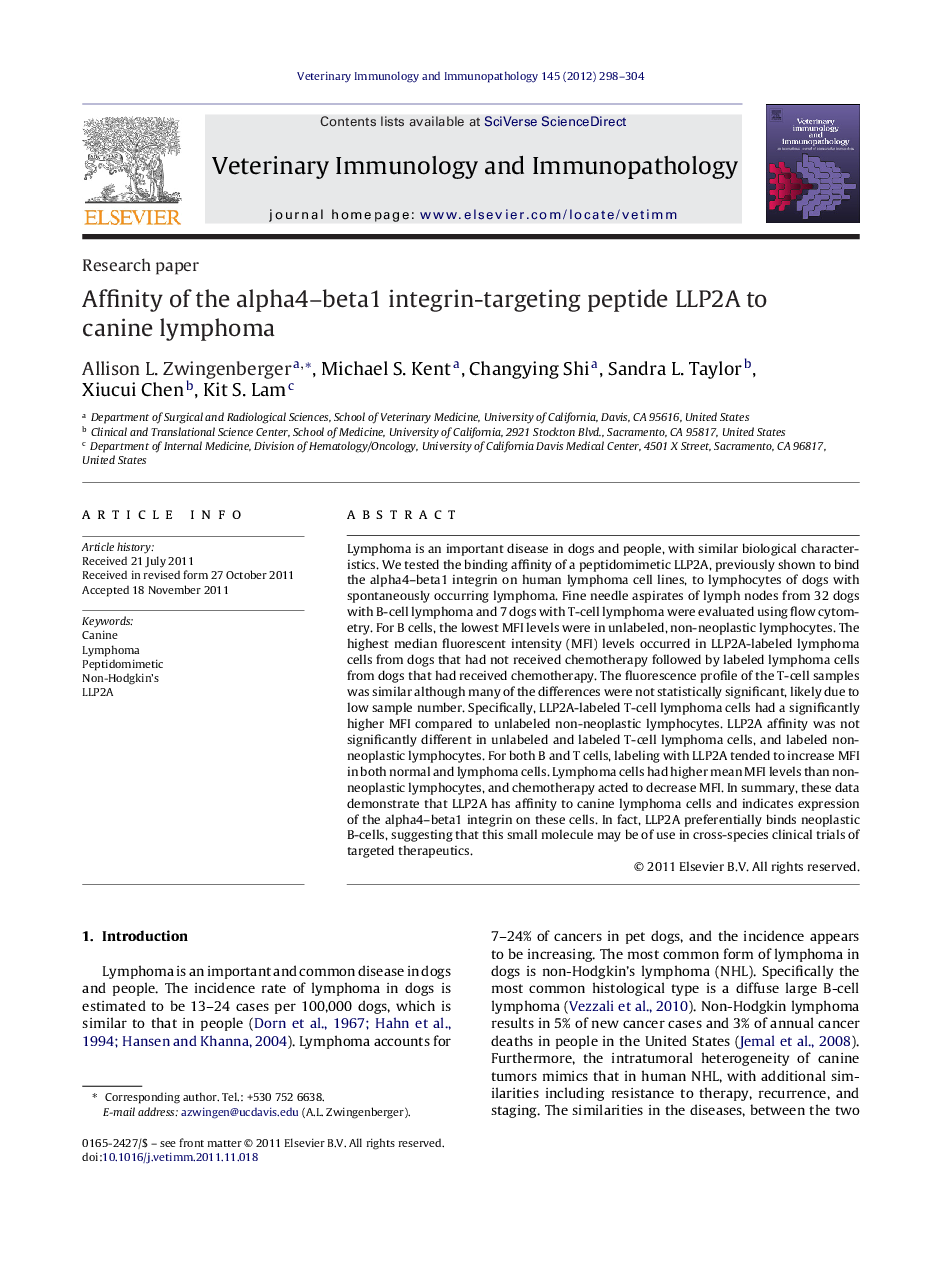| Article ID | Journal | Published Year | Pages | File Type |
|---|---|---|---|---|
| 2461930 | Veterinary Immunology and Immunopathology | 2012 | 7 Pages |
Lymphoma is an important disease in dogs and people, with similar biological characteristics. We tested the binding affinity of a peptidomimetic LLP2A, previously shown to bind the alpha4–beta1 integrin on human lymphoma cell lines, to lymphocytes of dogs with spontaneously occurring lymphoma. Fine needle aspirates of lymph nodes from 32 dogs with B-cell lymphoma and 7 dogs with T-cell lymphoma were evaluated using flow cytometry. For B cells, the lowest MFI levels were in unlabeled, non-neoplastic lymphocytes. The highest median fluorescent intensity (MFI) levels occurred in LLP2A-labeled lymphoma cells from dogs that had not received chemotherapy followed by labeled lymphoma cells from dogs that had received chemotherapy. The fluorescence profile of the T-cell samples was similar although many of the differences were not statistically significant, likely due to low sample number. Specifically, LLP2A-labeled T-cell lymphoma cells had a significantly higher MFI compared to unlabeled non-neoplastic lymphocytes. LLP2A affinity was not significantly different in unlabeled and labeled T-cell lymphoma cells, and labeled non-neoplastic lymphocytes. For both B and T cells, labeling with LLP2A tended to increase MFI in both normal and lymphoma cells. Lymphoma cells had higher mean MFI levels than non-neoplastic lymphocytes, and chemotherapy acted to decrease MFI. In summary, these data demonstrate that LLP2A has affinity to canine lymphoma cells and indicates expression of the alpha4–beta1 integrin on these cells. In fact, LLP2A preferentially binds neoplastic B-cells, suggesting that this small molecule may be of use in cross-species clinical trials of targeted therapeutics.
